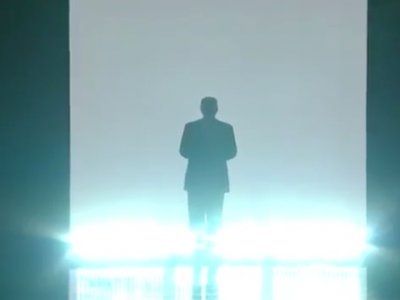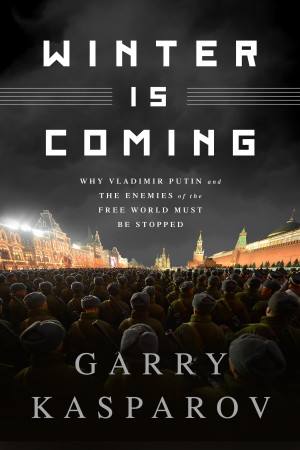

READ ORIGINAL ARTICLE IN THE DAILY NEWS
by Garry Kasparov
Thursday, July 21, 2016
It’s too easy to imagine the horror with which statesmen like Abraham Lincoln or Ronald Reagan would view Donald Trump’s rampage through the GOP. I’d like to hear instead from the late Sen. Joseph McCarthy, the founding father of the Red Scare in the 1950s, or from his fellow redbaiter Richard Nixon.
I can imagine them waving a stack of papers and shouting, “I hold here in my hand a list of names of people at the highest levels of the Trump campaign who have worked for the Russian government under the direction of a former agent of the KGB!”
This charge would be entirely accurate, although it’s always been dubious that there is anything former at all about Vladimir Putin’s KGB status. It’s well-established that Trump’s campaign manager, Paul Manafort, and two of Trump’s top advisers, Carter Page and Michael Flynn, have ties to Russia and the Kremlin.
Manafort worked for years as the chief political fixer for Viktor Yanukovych, Putin’s puppet ruler of Ukraine. Page used to work for Russian energy giant Gazprom and was recently in Moscow on Trump’s behalf to explain that America shouldn’t interfere in global affairs (especially Putin’s), talking points that come straight from Russian state-controlled TV. Trump himself has frequently praised Putin’s “strength” while suggesting that the two of them would get along very well.
Meanwhile, Putin’s giant global propaganda machine promoted Trump through the GOP primary and makes it quite apparent that Moscow would much prefer him to Hillary Clinton as President Obama’s replacement. What had been lacking until now was any tangible return on the Kremlin’s investment.
That changed last week when members of the Trump campaign worked with pro-Trump delegates to change a GOP platform amendment on American aid to Ukraine, which was invaded by Putin in 2014 and where Russian forces maintain a destabilizing conflict. The amendment originally followed the recommendation of nearly every top U.S. military and security official to “provide lethal defensive weapons” that would help Ukraine’s fragile democracy defend itself.
The Trump staff got the language changed to “appropriate assistance,” a meaningfully meaningless phrase that no doubt pleased Putin very much.
The change also aligned Trump’s position with that of Obama, who has made a foreign policy career of always doing just enough to look like he’s doing something while never doing enough to get anything done. Obama’s tepid response to the invasion of Ukraine — and to Russia’s genocidal campaign in Syria — hasn’t deterred Putin. Meanwhile, other dictators and would-be autocrats from Iran to Venezuela to Turkey are watching and learning.
It’s too easy to imagine the horror with which statesmen like Abraham Lincoln or Ronald Reagan would view Donald Trump’s rampage through the GOP. I’d like to hear instead from the late Sen. Joseph McCarthy, the founding father of the Red Scare in the 1950s, or from his fellow redbaiter Richard Nixon.
I can imagine them waving a stack of papers and shouting, “I hold here in my hand a list of names of people at the highest levels of the Trump campaign who have worked for the Russian government under the direction of a former agent of the KGB!”
This charge would be entirely accurate, although it’s always been dubious that there is anything former at all about Vladimir Putin’s KGB status. It’s well-established that Trump’s campaign manager, Paul Manafort, and two of Trump’s top advisers, Carter Page and Michael Flynn, have ties to Russia and the Kremlin.
Manafort worked for years as the chief political fixer for Viktor Yanukovych, Putin’s puppet ruler of Ukraine. Page used to work for Russian energy giant Gazprom and was recently in Moscow on Trump’s behalf to explain that America shouldn’t interfere in global affairs (especially Putin’s), talking points that come straight from Russian state-controlled TV. Trump himself has frequently praised Putin’s “strength” while suggesting that the two of them would get along very well.
INTERACTIVE FEATURE: See how the Daily News has covered Donald Trump’s scandals for 30 years
Meanwhile, Putin’s giant global propaganda machine promoted Trump through the GOP primary and makes it quite apparent that Moscow would much prefer him to Hillary Clinton as President Obama’s replacement. What had been lacking until now was any tangible return on the Kremlin’s investment.
That changed last week when members of the Trump campaign worked with pro-Trump delegates to change a GOP platform amendment on American aid to Ukraine, which was invaded by Putin in 2014 and where Russian forces maintain a destabilizing conflict. The amendment originally followed the recommendation of nearly every top U.S. military and security official to “provide lethal defensive weapons” that would help Ukraine’s fragile democracy defend itself.
The Trump staff got the language changed to “appropriate assistance,” a meaningfully meaningless phrase that no doubt pleased Putin very much.
The change also aligned Trump’s position with that of Obama, who has made a foreign policy career of always doing just enough to look like he’s doing something while never doing enough to get anything done. Obama’s tepid response to the invasion of Ukraine — and to Russia’s genocidal campaign in Syria — hasn’t deterred Putin. Meanwhile, other dictators and would-be autocrats from Iran to Venezuela to Turkey are watching and learning.
The idea that America has a vital role to play in promoting and defending democracy around the world has long been out of fashion in the Democratic Party. This was not always the case. Following in the footsteps of Harry Truman and John F. Kennedy, Sen. Henry (Scoop) Jackson inserted human rights into American foreign policy with legislation that tied trade to easing restrictions on emigration, especially for Soviet Jews.
In a 1972 speech on the Senate floor, Jackson said, “We can, and we must, keep the faith of our own highest traditions. We must not now, as we once did, acquiesce to tyranny while there are those, at greater risk than ourselves, who dare to resist.”
Reagan fulfilled Jackson’s sentiment, to the great jubilation of myself and hundreds of millions of others behind the Iron Curtain. Reagan’s strong moral stance also coincided with the rise of hyperpartisanship in Washington, D.C., meaning anything a Republican President was for, the Democrats were against, and vice versa, turning global human rights and democracy into just another political talking point.
Now, on the other side of the aisle, a neo-isolationist consensus is forming, with Trump parroting “America First” drivel from the 1930s, which makes even less sense in today’s world of globalized economies and globalized terror. This head-in-the-sand approach is matched by Obama’s savvy understanding that action is always judged more harshly than inaction, especially while he’s in office.
The Iraq War accelerated the trend against intervention. Instead of learning lessons about how to do a better job of acting against terror-sponsoring tyrants, protecting civilian populations, and helping fragile freedoms and democracy to grow, the takeaway has been “never do anything.” Unsurprisingly, the power vacuum left by the U.S. has been filled by the thugs and terrorists who are growing only bolder.
An America in full global retreat is creating a backslide toward the great powers era of distrust, disunity and regional spheres of influence.
Yanukovych fled Ukraine in disgrace at the cost of many lives. Better still for Trump and his ilk: prevent would-be tyrants from grasping power in the first place.
Kasparov is the chairman of the New York-based Human Rights Foundation, the author of “Winter is Coming,” and former world chess champion.



